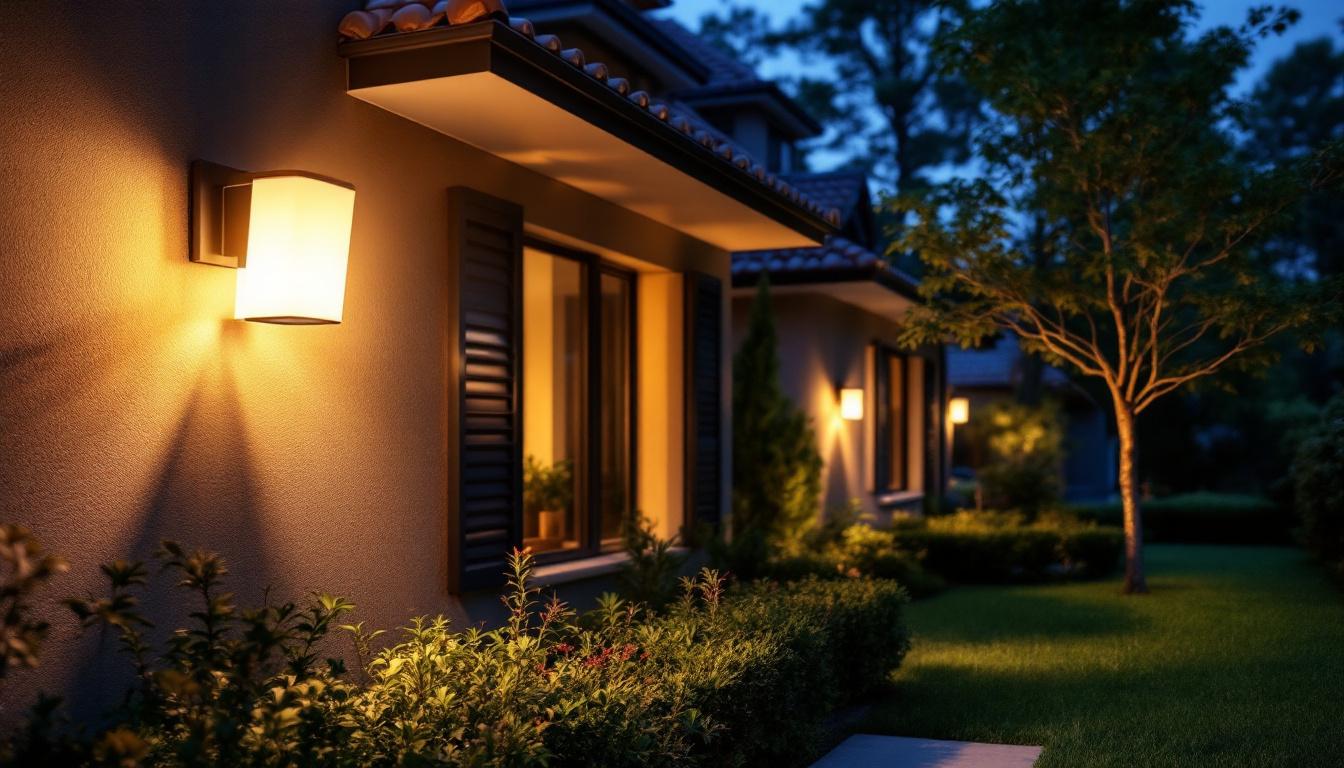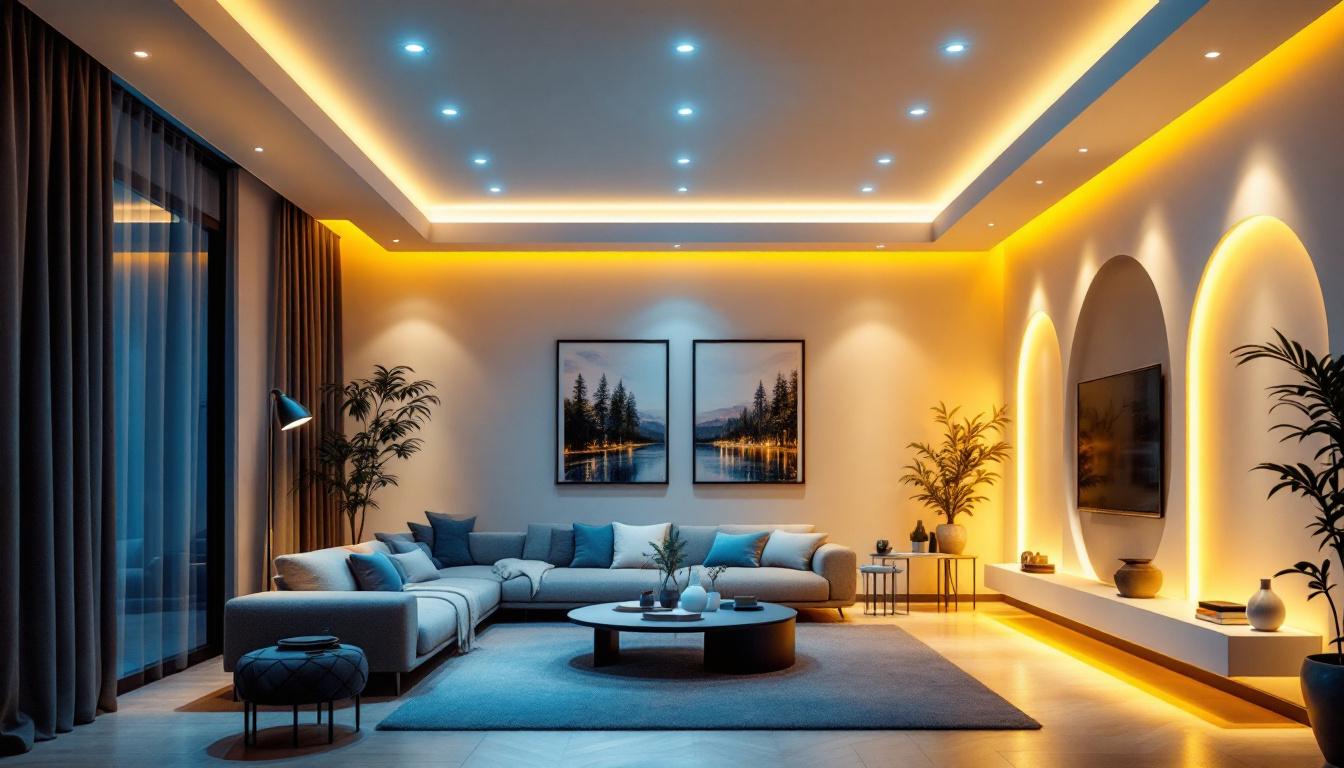
In an era where technology is rapidly evolving, the role of lighting contractors has expanded significantly. smart lighting solutions not only enhance the aesthetic appeal of spaces but also contribute to energy efficiency and user convenience. This article explores various approaches that lighting contractors can adopt to stay ahead in the competitive landscape of smart lighting.
Smart lighting encompasses a range of technologies that allow for enhanced control and automation of lighting systems. From LED fixtures to integrated sensors, understanding these technologies is crucial for contractors aiming to provide comprehensive solutions.
LED lighting serves as the backbone of most smart lighting systems. With their energy efficiency and longevity, LEDs are not just a replacement for traditional bulbs; they are a gateway to smarter solutions. Contractors should emphasize the benefits of LEDs, such as reduced energy costs and lower maintenance needs, when discussing options with clients.
Moreover, the integration of smart controls with LED technology allows for features like dimming, color changing, and scheduling. These capabilities can significantly enhance user experience, making it essential for contractors to stay updated on the latest LED advancements and their applications. For instance, the ability to adjust color temperature can create different atmospheres, from a warm, cozy glow for relaxation to bright, cool lighting for productivity. This versatility not only caters to individual preferences but also promotes well-being by aligning lighting with natural circadian rhythms.
The Internet of Things (IoT) has transformed how lighting systems operate. Smart lighting systems can now connect to the internet, enabling remote control and automation through smartphones or voice-activated devices. This integration allows users to customize their lighting environments based on personal preferences or specific needs.
For contractors, understanding IoT protocols and compatibility is vital. Knowledge of platforms such as Zigbee, Z-Wave, and Wi-Fi can help in designing systems that are both functional and user-friendly. Clients appreciate contractors who can offer tailored solutions that integrate seamlessly with their existing smart home ecosystems. Furthermore, the potential for energy monitoring and usage analytics through IoT-connected lighting systems can empower homeowners to make informed decisions about their energy consumption, leading to further savings and sustainability. As smart home technology continues to evolve, the integration of lighting with other smart devices—like security systems and HVAC—will become increasingly important, creating a holistic approach to home automation that contractors should be prepared to implement.
Design plays a critical role in the success of any lighting project. For smart lighting, contractors must consider not only the technical aspects but also the aesthetic and functional requirements of the space.
Before proposing a lighting solution, contractors should conduct a thorough assessment of the client’s needs. This includes understanding the purpose of the space, the desired ambiance, and any specific requirements such as energy efficiency or automation. Engaging with clients through discussions and questionnaires can yield valuable insights into their preferences.
Additionally, evaluating the dynamics of the space is crucial. Factors such as natural light availability, room dimensions, and existing architectural features can influence the choice of fixtures and controls. A well-thought-out design not only meets client expectations but also enhances the overall functionality of the space. For instance, in a home office, the placement of lighting can significantly affect productivity; bright, focused task lighting may be necessary during work hours, while softer, warmer tones can create a more relaxed atmosphere after hours. Understanding these nuances allows contractors to tailor their designs to the specific needs of each client.
Versatility is key in modern lighting design. Smart lighting systems should be adaptable to various scenarios, from hosting gatherings to creating a cozy atmosphere for relaxation. Contractors can achieve this by incorporating multiple lighting zones and layers, allowing clients to customize their environments easily.
Using a combination of ambient, task, and accent lighting can create a balanced and dynamic lighting scheme. Contractors should also consider incorporating tunable white lighting, which adjusts the color temperature throughout the day, mimicking natural light patterns. This not only enhances comfort but can also improve productivity and well-being. Furthermore, integrating smart controls such as mobile apps or voice-activated systems can empower clients to manage their lighting with ease. Imagine a scenario where a homeowner can set the mood for a movie night with a single command, dimming the lights and changing the color to a soft blue, all while ensuring energy efficiency through automated schedules. This level of convenience and personalization is what modern smart lighting solutions aim to provide, transforming the way we interact with our environments.
Effective installation practices are essential for the successful implementation of smart lighting systems. Contractors must ensure that the installation process is efficient, safe, and compliant with local regulations.
Proper planning is the cornerstone of any successful installation. Contractors should create detailed project plans that outline timelines, resource allocation, and potential challenges. This proactive approach minimizes disruptions and ensures that the project stays on track.
Moreover, preparing the site before installation can significantly enhance efficiency. This includes ensuring that all necessary tools and materials are on hand, as well as confirming that the electrical infrastructure can support the new lighting system. A well-prepared site allows for a smoother installation process and helps avoid costly delays. Additionally, engaging with stakeholders early in the planning phase can provide valuable insights and foster collaboration, ensuring that everyone’s expectations are aligned and that the project meets the specific needs of the end-users.
Furthermore, conducting a site assessment can uncover unique challenges that may not be immediately apparent. Factors such as existing architectural features, landscaping, and potential obstructions should be considered. By addressing these elements during the planning stage, contractors can devise innovative solutions that enhance the overall aesthetics and functionality of the smart lighting system.
Safety is paramount in any electrical installation. Contractors must adhere to local codes and regulations, ensuring that all wiring and fixtures are installed correctly. This not only protects the safety of the occupants but also safeguards the contractor’s reputation.
Conducting thorough inspections and testing the system after installation is crucial. This ensures that all components function correctly and that the smart features operate as intended. Providing clients with a comprehensive overview of the system’s capabilities can also enhance their confidence in the installation. Additionally, educating clients about maintenance practices and troubleshooting common issues can empower them to manage their smart lighting systems effectively, prolonging the lifespan of the installation.
It’s also important for contractors to stay updated on the latest safety standards and technological advancements in smart lighting. Regular training and certification can equip them with the knowledge necessary to implement cutting-edge solutions while maintaining compliance with evolving regulations. By prioritizing ongoing education, contractors not only enhance their skill set but also position themselves as industry leaders, capable of delivering innovative and reliable installations that meet the demands of modern smart environments.
The relationship between contractors and clients does not end with installation. Providing ongoing support and maintenance is essential for ensuring the longevity and performance of smart lighting systems.
Once the installation is complete, contractors should offer training sessions for clients on how to use their new smart lighting systems effectively. This can include demonstrations of features such as remote control, scheduling, and scene setting. Providing user manuals and online resources can also empower clients to make the most of their systems.
Additionally, contractors can create a feedback loop by encouraging clients to share their experiences and any challenges they may face. This not only helps in addressing immediate concerns but also provides valuable insights for future projects.
Regular maintenance checks are vital for the optimal performance of smart lighting systems. Contractors can offer maintenance packages that include periodic inspections, software updates, and troubleshooting. This proactive approach not only extends the lifespan of the systems but also builds trust and reliability with clients.
Moreover, staying in touch with clients for maintenance can lead to opportunities for upselling additional features or upgrades, keeping the contractor’s business thriving in a competitive market.
In a rapidly evolving industry, effective marketing strategies are essential for lighting contractors to attract new clients and retain existing ones. Highlighting expertise in smart lighting can set a contractor apart from the competition.
Digital marketing offers numerous avenues for contractors to showcase their services. Creating a professional website that highlights past projects, client testimonials, and the benefits of smart lighting can attract potential clients. Engaging content, such as blogs or videos, can also educate consumers about the advantages of smart lighting solutions.
Social media platforms provide another effective channel for marketing. Sharing visually appealing images of completed projects, along with informative posts about smart lighting technologies, can engage a wider audience. Contractors can also leverage paid advertising to target specific demographics interested in home automation and energy-efficient solutions.
Building relationships with other professionals in the construction and design industries can lead to valuable referrals. Networking at industry events, trade shows, or local business groups can create opportunities for collaboration and increase visibility.
Establishing partnerships with manufacturers of smart lighting products can also be beneficial. This not only provides access to the latest technologies but can also lead to exclusive deals or training opportunities, further enhancing the contractor’s expertise and service offerings.
As the demand for smart lighting solutions continues to grow, lighting contractors must adapt their approaches to meet evolving client needs. By understanding the technologies, designing versatile solutions, ensuring quality installations, and providing ongoing support, contractors can position themselves as leaders in the smart lighting market.
Moreover, effective marketing strategies and strong professional networks can help contractors reach new clients and expand their businesses. Embracing these approaches will not only enhance the contractor’s reputation but also contribute to the overall advancement of the lighting industry.
Ready to elevate your smart lighting installations with the finest products on the market? At LumenWholesale, we provide contractors like you with spec-grade lighting essentials at unbeatable wholesale prices. Say goodbye to local distributor markups and hello to a vast selection of industry-standard, reliable lighting solutions. Plus, with free shipping on bulk orders, you can stock up on premium lighting without worrying about hidden fees. Don’t compromise on quality or value—visit LumenWholesale today and discover the perfect fusion of quality, affordability, and convenience for all your lighting projects.

Discover essential tips for lighting contractors on installing solar wall mount outdoor lights.

Discover the various types of bulb sockets and learn what distinguishes top lighting contractors in their choice and installation.

Discover how partnering with lighting specialists can illuminate new opportunities for your business.

Discover stunning recessed lighting photos and expert tips in our ultimate guide for lighting contractors.